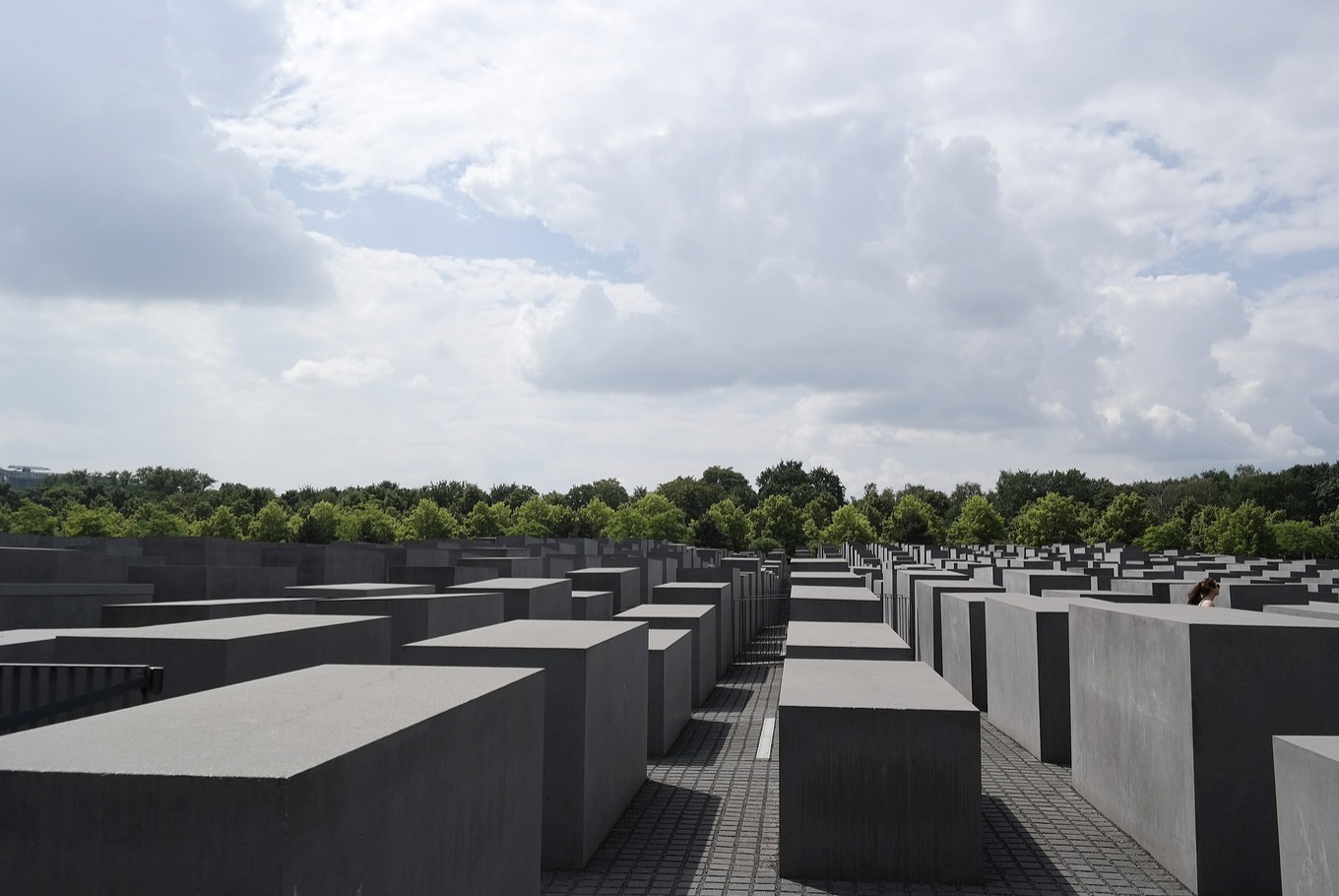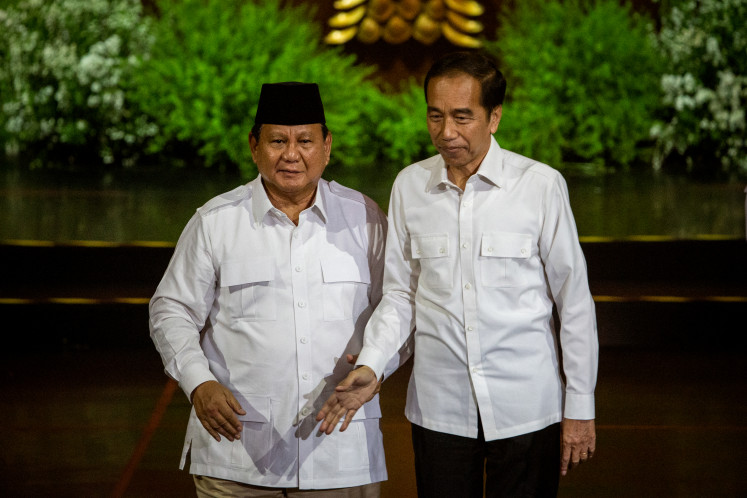Popular Reads
Top Results
Can't find what you're looking for?
View all search resultsPopular Reads
Top Results
Can't find what you're looking for?
View all search resultsReading 20th century politics in 2010s
The ethnic Chinese of Southeast Asia never experienced anything close to the Holocaust, but they are in constant fear that another riot is around the corner. By learning how Europe’s anti-Semitism and pogroms led to the Holocaust, I wished to understand the nature of the long term anti-Chinese hatred that led to the May 1998 riots.
Change text size
Gift Premium Articles
to Anyone
I
was fortunate to be taught by Robert Manne, a prominent Australian academic and public commentator who was a conservative in the 1980s and a leftwing liberal in the 21st century.
He is a man of many interests — 20th century European politics (with an emphasis on the Holocaust and communism), Australia’s treatment of asylum seekers and indigenous Australians, and climate change. I studied two subjects under him — political ideas in the 20th century and the Holocaust.
I was interested in the Holocaust because I wanted to understand the May 1998 riots and the prevalence of anti-Chinese sentiment in Southeast Asia. In explaining anti-Chinese sentiment in Southeast Asia, Western correspondents and writers often use the analogy of European Jews to describe how Southeast Asian ethnic Chinese are seen by other Asians.
Like the Jews of Europe’s Industrial Age, the ethnic Chinese of Southeast Asia have a different religion and culture to the majority; they live as traders or professionals in their new homes and emphasize education for their children.
Intermarriage, religious conversion and assimilation happens, but these cases are not enough to end the antipathy of others toward them. Hatred against them is encouraged by religious, business and political leaders. They were the victims of 20th century nationalism, fundamentalism and communism.
The ethnic Chinese of Southeast Asia never experienced anything close to the Holocaust, but they are in constant fear that another riot is around the corner. By learning how Europe’s anti-Semitism and pogroms led to the Holocaust, I wished to understand the nature of the long term anti-Chinese hatred that led to the May 1998 riots.
I learned about fascism and totalitarianism and their terrifying uses of language, ideas and rhetoric. Fascist leaders saw themselves as the saviors of the masses, who would renew the nation with purity and justice by exterminating the corrupt and greedy old orders. Instruments such as the party, the secret police and the media were used to force obedience, to scare established businesses and politicians and to tell the public that resistance was futile.
Many European writers spent their lives trying to understand what happened before 1945, and what continued to happen until 1991. George Orwell wrestled with the question of how socialism, supposedly a potent force for good against imperialism and colonialism, could evolve into the monster that was Stalinism. Vaclav Havel dealt with an authoritarian puppet government, where people were forced to “live within a lie”.
Meanwhile, Jewish writers tried to make sense of the Holocaust. Primo Levi lived with survivor’s guilt throughout his life, believing he survived not only because of his qualifications in chemistry, but also because he shed his humanity. Hannah Arendt examined the similarities of Nazism and Stalinism and then the human nature of evil in the figure of Adolf Eichmann, a Nazi figure who was put on trial by Israel. Two intellectuals who died in this decade, Tony Judt and Eric Hobsbawm, reflected on their past as left-wing Jews who constantly examined prewar totalitarianism.
Studying the Holocaust and 20th century Europe, of course, didn’t really answer my question on modern Southeast Asian ethnic Chinese. There are no ethnic Chinese public intellectuals who constantly write and speak about racism, Chinese identity and how they relate with Southeast Asian politics. Studies on ethnic Chinese diaspora have a place in universities and think tanks, but not in the cinema or in the blockbuster book market.
But what I learned has helped me think about the nature of racism, nationhood and hatred.
For years, I struggled with my Chinese-Indonesian identity (which is a taboo topic for most Chinese-Indonesians) before accepting my biracial heritage. I’ve met Chinese-Indonesian progressives who admit that it is never easy to discuss their politics, identities and even sexualities with their families and social circles.
We have seen that while radical Islam is the main actor of intolerance and hate in Indonesia, Islam and Muslims are not the problem. People of different religions and creeds (including the non-religious) are also hounding the gays, women and the minorities using a similar language and similar methods to what the bigots here are using, whether online or in the streets.
These are testing times for our world. It is thought by some that 2017 will be a bleaker year than 2016, and not just in the West. There might be a change of guard in Jakarta, while progressive and democratic Indonesia and Taiwan remain minorities among Asian societies. Many of us are surprised to discover bigotry from our childhood friends and family members, uncovered through our Facebook and WhatsApp accounts.
There will be no wars between states in 2017, but there will be plenty of expressions of hate, anger and intolerance in the world’s greatest cities. There will be more discriminatory and reactionary regulations passed by governments against minorities, against women and against foreigners.
While Americans and Europeans will deal with hateful youth and isolationist politicians, we will deal with religious thugs and corrupt members of the government. They are driven by the same things, no matter how ideologically different they are: fear, hate and insecurity.
Our greatest hope is ourselves. More people voted for Hillary Clinton than for Donald Trump. There are so many people speaking out against the bullies of Bandung, Yogyakarta and Jakarta, even when they don’t take to the road. They might express their voices at the ballot box.
We cannot afford another murderous, ignorant and selfish government in the world. Whether you’re an Indonesian or a European, you must help keep your country and your region safe in 2017. You know who to vote for. You know what is at stake. You’ve learned what happened. You have seen the price of ignorance and of cynicism.
---------------
We are looking for information, opinions, and in-depth analysis from experts or scholars in a variety of fields. We choose articles based on facts or opinions about general news, as well as quality analysis and commentary about Indonesia or international events. Send your piece to community@jakpost.com. For more information click here.










